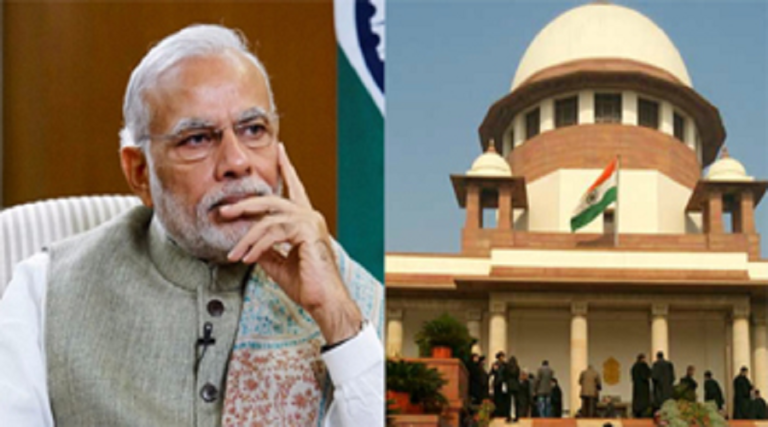
During the course of the interview given to Karan Thapar for The Wire, the former chief justice of the Madras and Delhi High Courts, who is also a former chairman of the Law Commission, recounted how over the last eight years “the judiciary is completely demoralised and under siege”.
Team Clarion
FORMER chief justice of the Madras and Delhi High Courts Justice Ajit Prakash Shah has recently pointed out that the Supreme Court “practically succumbed to the executive’s control” ever since Narendra Modi became Prime Minister in 2014.
In a scathing attack on the functioning of the Supreme Court in the last eight years, in an interview, Justice Ajit Prakash Shah was particular critical of the tenure of former chief justice Ranjan Gogoi that saw the apex court’s abject surrender to the government. He said, “All floodgates opened after CJI Thakur’s retirement.”
During the course of the interview given to Karan Thapar for The Wire, Justice Shah, who is also a former chairman of the Law Commission, recounted how over the last eight years “the judiciary is completely demoralised and under siege”.
Taking a criticical view of the functioning of the Collegium System, he said, “Judges appointing judges is not a good idea … the National Judicial Commission is the best way.”
In the two-part interview lasting for 50-minute, Justice Shah first discussed the functioning of chief justices of the Supreme Court as well as some judges of the court in the eight years since Narendra Modi came to power at the Centre.
In part two, he dwelt on the subject of judicial integrity where he raised issues such as whether judges should be appointed on the basis of seniority or performance and ability, whether chief justices of the Supreme Court should have a fixed tenure, whether the powers of the chief justice as Master of the Roster (to decide which cases are heard or not heard, the size of the bench as well as its composition) should be diluted or amended, whether the Collegium System is the best way of choosing judges and whether the Supreme Court erred by acting in haste both to hear and then to pronounce its decision over the Bombay High Court’s ruling discharging Prof. Saibaba.
Justice Shah reserved his worst criticism in the entire interview for the nomination of Justice Ranjan Gogoi as a Rajya Sabha MP by the government. He questioned the legal and ethical justification for acceptance of the retired chief justice of the country of the government’s endowment.
On being asked who he thinks is to blame for this moral degradation. Whether he blames the government for offering the Rajya Sabha seat, in contravention of the Law Commission’s position in the matter… Or he thinks the chief justice is blameworthy for accepting the offer… Justice Shah’s unequivocal answer was that he blames the chief justice.